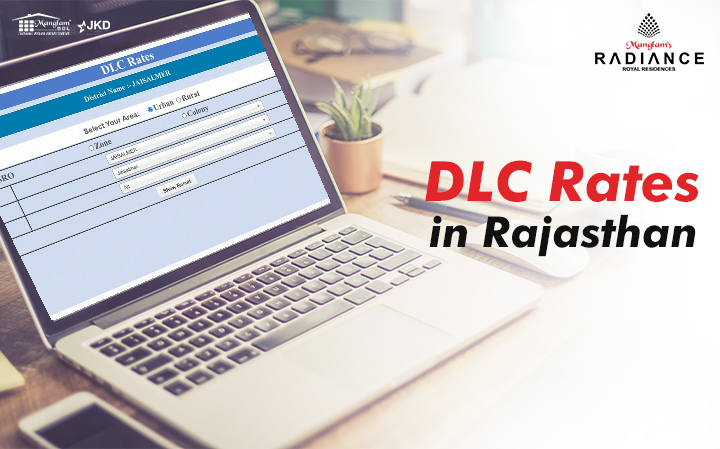In this blog, We know about how NRI can buy property in India, the complete guide itself.
First of all, If you are a Non-Resident Indian (NRI), you can purchase real estate in India even if you have lived outside the country for a short period or most of your life.
Which type of properties can NRIs buy in India?
NRIs cannot purchase agricultural land, farmhouses, or plantation properties. Only if you have inherited such property (that is, received it as an heir after the previous owner passed away) will you be able to claim ownership of it legally. NRIs can purchase property in India and immovable properties also.
How NRIs can buy these properties then?
However, NRIs are required to obtain authorization from both the RBI and the Indian government if they want to purchase agricultural land, plantation property, or farmhouses in India.
It is possible for a person who was a resident of India and owned property there to continue to hold onto that property after they become a non-resident of India.
It is also permissible for non-resident Indians can hold on to properties they formerly owned, such as a plantation, agricultural land, or a home.
They can also rent out their property, which is possible regardless of when it was purchased. On such receipts, NRIs must pay tax following the nation’s laws.
Procedure for NRIs to buy property in India or Critical requirements for NRIs to buy a property in India
● Documents
NRIs must provide a few mandatory documents, given that they are NRIs. These documents include a copy of your Indian passport and visa, a work permit from the nation where you now reside, your most recent income tax returns, and paystubs for the most recent six months. You must also hand in the relevant property-related documentation, such as the title deed, a NOC from the society, and other such items.
● Authorization to Act in a Special Capacity
When you offer someone Power of Attorney, you are delegating the authority to carry out the property transaction in India on your behalf. At the same time, you are located outside of the country. To ensure that the procedure for purchasing property in India for an NRI goes off without a hitch, it is imperative that you have the document containing a power of attorney (PoA) notarized. Since most lenders require it, a Power of Attorney is an absolute must if you plan on using a home loan to finance real estate acquisition. You are required to appoint a resident Indian citizen as the PoA.
● Accounts designated as NRE and NRO
If you are a non-resident Indian (NRI), you must keep an NRE and an NRO account in India (2). You can move money into or out of India via the NRE account, “Non-Resident External.” You won’t have to pay taxes on any of the interest money you get from it. The Non-Resident Ordinary Account, or NRO Account for short, allows you to handle your revenue sources from India. You can also transfer foreign currency into this account, enabling you to finance your intentions to buy property in India as an NRI.
Can NRI take loans to buy property in India?
after knowing how can NRI buy property in India, the very first imp question after will come that “Can NRI take loans to buy property in India’? let’s discuss this thoroughly!
NRIs might also use a home loan to buy property in the country. Most banks and NBFCs (Non-Banking Financial Companies) are happy to give a loan to a non-resident Indian (NRI) without any additional red tape or limits on the loan amount.
The loan is approved and must be repaid in Indian Rupees (INR) by the lending institution. The interest rate, however, could be more significant. This can vary widely depending on the loan source chosen. Instead of depositing the loan proceeds into your bank account, the lender pays them to the seller or developer. Loan EMIs can be produced with funds from an NRO or NRE account or an FNCR deposit account.
Tax on NRIs Properties in India
- Suppose an NRI purchases a property in India that is still being built. In that case, they are responsible for paying all applicable taxes, including stamp duty, registration fee, post-purchase annual property tax, and even GST.
- Rental income earned by a non-resident Indian (NRI) from a property in India is subject to the exact taxation requirements as income earned by an Indian resident.
- If the property were sold, the seller could be required to pay either a short-term or a long-term capital gain tax, depending on how long they had held onto the property.
You’ll be subject to a 30% TDS (tax deducted at source) on any rent money you collect from the property. Long-term capital gains are subject to a TDS of 20% in the event of a resale, whereas short-term gains are taxed following the NRI income tax slab rates.
Stamp duty, registration fees, Goods and Services Tax, etc., may also be levied against non-resident aliens.
Also Read:- How to avoid GST on flat purchases
Mode of payment for the purchase of Property in India
You may make your regular instalment payments in any of the following ways:
- You can use the traditional banking system to move the funds from your foreign bank account back home.
- Send money from your NRE, NRO, or FCNR account using postdated checks or the Electronic Clearance Service (ECS).
- Paying for it with cash from rent collected at this location
- Pay with reviews written on the bank account of a close relative who lives in the area.
If you want more information regarding this, visit this blog!
FAQs
Can NRI buy property in India without visiting?
Giving a representative power of attorney (PoA) allows you to acquire property in India as a non-resident Indian (NRI) if you cannot go to India to do it yourself. With everything in place, your agent can represent your interests in legal matters like closing the property deal.
What is the law for NRI property in India?
Property ownership and related transactions by non-resident Indians (NRIs) are subject to several rules and Acts. The Foreign Exchange Management Act, 1999 (FEMA) and the regulations issued by the Reserve Bank of India (RBI) control the purchase and sale of immovable property in India by foreign nationals and non-resident Indians (NRIs).
How much is NRI tax-free in India?
Additionally, the Finance Act 2020 has included a new Section 6(1A) that will become effective beginning with the Assessment Year 2021-22. It states that a citizen of India with a total income greater than Rs. 15 lakhs (excluding income from overseas sources) will be considered to be a resident of India even if they are not required to pay taxes in any other country.
What is the NRI 120 days rule?
NRIs (covers Indian nationals and Persons of Indian Origin) include, up to the conclusion of FY 2019-20 (i.e. the financial year ending March 31, 2020), those individuals who were located outside of India and visited India for a total of fewer than 182 days throughout a financial year. This term was shortened to 120 days by the Finance Act of 2020 for circumstances in which the total taxable Indian income (i.e., income accruing in India) of such visiting individuals during the financial year is more significant than Rs 15 lakhs. This is the NRI 120-day rule in action.





